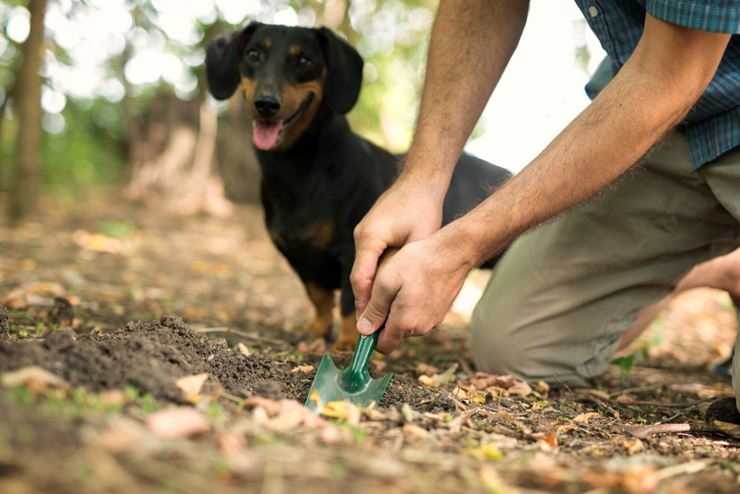
Green Paws: Easy Tips for an Eco-Friendly Life with Your Dog
Eco-conscious living isn’t just for your home or lifestyle anymore — it’s something you can bring into your pet care routine, too. As more people embrace sustainability, owners like you have a unique opportunity to reduce their companion’s environmental pawprint. From choosing eco-friendly products to adopting waste-reducing habits, small changes can make a big impact. Taking simple, thoughtful steps helps the planet and creates a healthier, more sustainable world for you, your dog, and future generations.
Choose Eco-Friendly Pet Products
Feeding your dog sustainably is easier than you think. Choose organic, locally sourced, or plant-based foods, which are better for the environment and healthier for your furry friend. Organic options avoid harmful pesticides, while locally sourced foods cut down on the carbon footprint of transportation.
Don’t forget to pick up toys and accessories made from recycled or biodegradable materials. These include rope toys from upcycled fabrics or compostable chewables that keep landfills clean.
When grooming, switch to non-toxic shampoos and cleaners to avoid polluting waterways with harsh chemicals. Anti-flea and tick products are essential for your pet’s health, but they can end up in the environment through urine, hair, bathing, swimming, or rain runoff. Rather than skipping them, follow your veterinarian’s advice and consider using eco-safe or targeted formulas that minimize their environmental impact. Thoughtful, sustainable choices can protect your pet and the planet.

Research Your Furry Friend’s Origins
The environmental toll of puppy mills is significant, with these operations often prioritizing profit over animal welfare. They contribute to overpopulation, increasing resource use and waste while creating unhealthy animal living conditions. However, it’s important to note that breeders are very different.
Reputable breeders focus on the health and well-being of their animals, often working to preserve and improve breed standards rather than simply turning a profit. If you’re considering buying, thoroughly research to ensure the breeder is ethical and prioritizes animal care.
Adopting a pet from a shelter or rescue organization reduces the strain on resources by lowering the number of animals needing care, food, and shelter. It also gives an animal a second chance and allows the organization more opportunities to help others. While staff work hard to provide accurate information, they can only know so much about a dog’s history, and there will likely be an adjustment period.
In many cases, these pets are mixed breeds, and each has its own personality, history, and care requirements. Be prepared to invest time in training and helping your new furry friend settle into their forever home. By choosing adoption, you make a better greener for your community and the planet.
Minimize Waste with Sustainable Practices
Composting is a fantastic way to reduce waste and support the environment, and pet owners can take it a step further by composting pet waste. If you do it correctly, it can keep harmful materials out of landfills and turn waste into nutrient-rich material for non-edible plants.
To compost safely, you’ll need a dedicated hot compost system that can consistently reach at least 145 degrees Fahrenheit for several days. This high temperature is critical to destroy harmful pathogens commonly found in its waste. However, if your pet is on medications or their waste contains chemicals, composting may not be the best option. Switching to compostable poop bags is a great alternative — they decompose naturally and reduce the use of plastic.
Not ready to dive into composting? You can also make your pet care routine greener by investing in durable, reusable items like washable pee pads or stainless steel food and water bowls. These small swaps save you money in the long run and drastically cut down on single-use waste.
Follow Eco-Friendly Pet Habits
Adopting eco-friendly habits is easier than you think and makes a big difference. For example, take your dog to local parks or trails for play, exercise, or training. This boosts their health and reduces emissions from car trips.
Feeding them the right options is another easy win because it helps you avoid food waste while keeping them healthy. With the U.S. generating around 300 million pounds of pet food and treat bags annually and over 99% of those bags going unrecycled, it’s clear how quickly waste can pile up.
You can help by recycling whenever possible, choosing products with sustainable packagin,g or supporting brands that prioritize eco-friendly practices. These small changes in your routine positively impact your environment, helping you live a greener, more sustainable lifestyle.

Educate and Advocate
Sharing your eco-friendly pet care tips with friends and family is a simple way to inspire others and expand your impact. Whether recommending biodegradable poop bags, DIY treats, or tips on reducing waste, your advice could help others make greener choices.
You can also connect with organizations or initiatives that promote sustainable ownership. Many groups host workshops, events, or online communities where you can learn and share ideas with like-minded owners. Look for local cleanups, sustainability events, or neighborhood meetups focusing on eco-friendly pet care. Getting involved and spreading the word helps create a community that prioritizes the planet.
Making a Big Difference with Small Changes
Small changes in how you care for your puppy can make a big difference for the planet. Every step matters, whether choosing eco-friendly products, reducing waste, or adopting sustainable habits. Start today by making one simple, greener choice for your pet — you’ll help create a better future for them and the environment.










